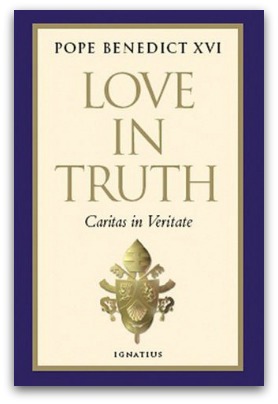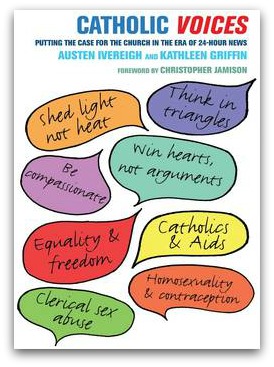Keywords: Pope Benedict Xvi
-

EUREKA STREET TV
- Peter Kirkwood
- 21 September 2012
4 Comments
READ MORE 
-

EUREKA STREET TV
- Peter Kirkwood
- 21 September 2012
2 Comments
Last weekend's Muslim riot in Sydney, prompted by a YouTube trailer for an anti-Muslim film, illustrated the disturbing power of new media. As secretary of the Vatican department responsible for the Church's social communications, Monsignor Paul Tighe grapples daily with the dilemmas and promises of new media.
READ MORE 
-

AUSTRALIA
- Michael Mullins
- 16 July 2012
16 Comments
Church leaders are often criticised for putting the reputation of the Church before the needs of victims. Last week the Australian Defence Force faced similar criticism following the release of a damning report on sexual abuse. There are lessons for Defence in Pope Benedict XVI's 2010 admission that sexual abuse reflects 'the sin inside the Church'.
READ MORE 
-

RELIGION
- Andrew Hamilton
- 04 May 2012
27 Comments
In his reflections on society and aspects of human life, Pope Benedict privileges charity. If any planning or struggle for a just society is to be effective it will depend on people's good will and generosity in the implementation. The Pope also says 'yes' to social justice. But his 'yes' is normally a 'yes, but ...'.
READ MORE 
-

RELIGION
- Frank Brennan
- 26 April 2012
4 Comments
'This Jesuit network will not succeed where Copenhagen failed, but it is an incremental contribution to one of the great moral challenges of our age [climate change].' Text from Frank Brennan's paper 'An interpretation and a raincheck on GC 35's call to develop international and interprovincial collaboration', Boston College, 28 April 2012.
READ MORE
-

RELIGION
- Frank Brennan
- 19 March 2012
Text from Fr Frank Brennan SJ's Lenten presentation 'Justice, the Church and the Ignatian tradition' at St Ignatius Parish, Norwood, 13 March 2012 and St Michael's, Clare, 14 March 2012.
READ MORE
-

AUSTRALIA
- Michael Mullins
- 30 January 2012
16 Comments
Last week Pope Benedict said silence and words are ‘two aspects of communication which need to be kept in balance’. This insight could help political strategists charged with explaining why political leaders are failing to connect with voters.
READ MORE 
-

RELIGION
- Andrew Hamilton
- 19 January 2012
8 Comments
The visit of Pope Benedict XVI to Great Britain last year prompted an interesting experiment. The Church asked for lay volunteers to deal with media enquiries. At first glance this could be construed as an exercise in corporate spin with a focus on persuasion and not on truth.
READ MORE 
-

RELIGION
- Frank Brennan
- 23 November 2011
Fr Frank Brennan SJ's address at the 'Ethics in a Multi Faith Society: Muslims and Christians in Dialogue' Conference, Conference under the auspices of the Fethullah Gulen Chair in the Study of Islam and Muslim-Catholic Relations, Australian Catholic University, Melbourne, 23 November 2011.
READ MORE
-

AUSTRALIA
- Jack de Groot
- 28 October 2011
6 Comments
If every economic decision has a moral consequence then the voice of the most marginalised should be amplified in economic discussions. CHOGM provides an opportunity to devise new solutions based on justice and compassion.
READ MORE 
-

RELIGION
- Frank Brennan
- 14 October 2011
Mary visited Rome as a young religious woman when she was being persecuted by local bishops for being too independent. She got a good hearing from the Pope and great assistance from Fr Anderledy who became the Superior General of the Jesuits. If only Bishop Bill Morris could have received the same sympathetic hearing.
READ MORE
-

RELIGION
- Frank Brennan
- 13 September 2011
5 Comments
The Church of the 21st century should be the exemplar of due process, natural justice and transparency. While there can be little useful critique of the final decision of Pope Benedict to force the early retirement of Bishop Bill Morris, there is plenty of scope to review the processes leading up to it.
READ MORE